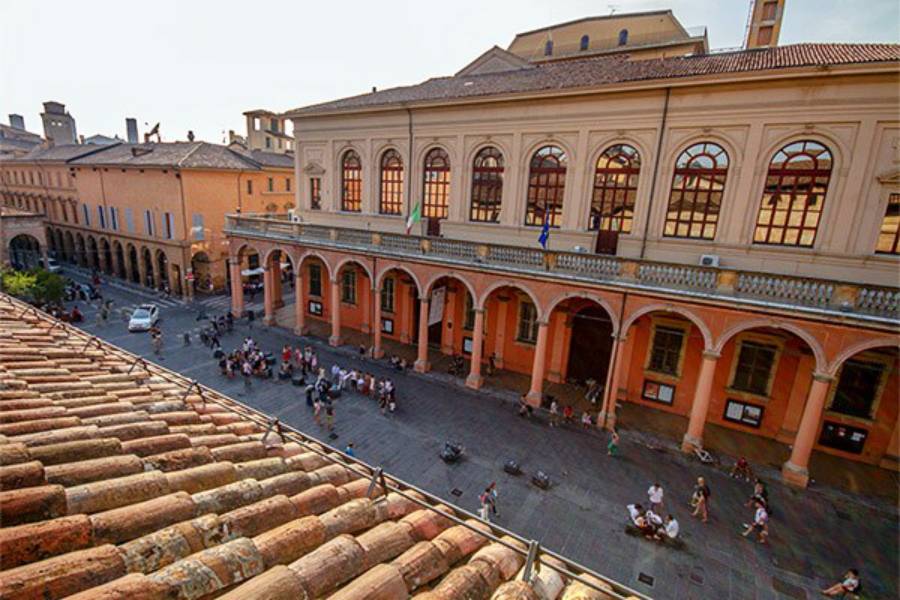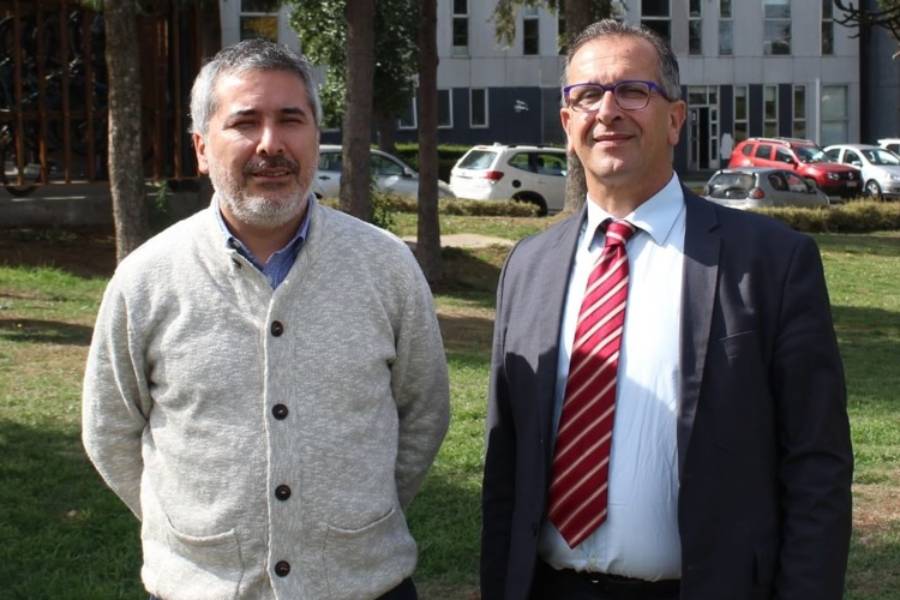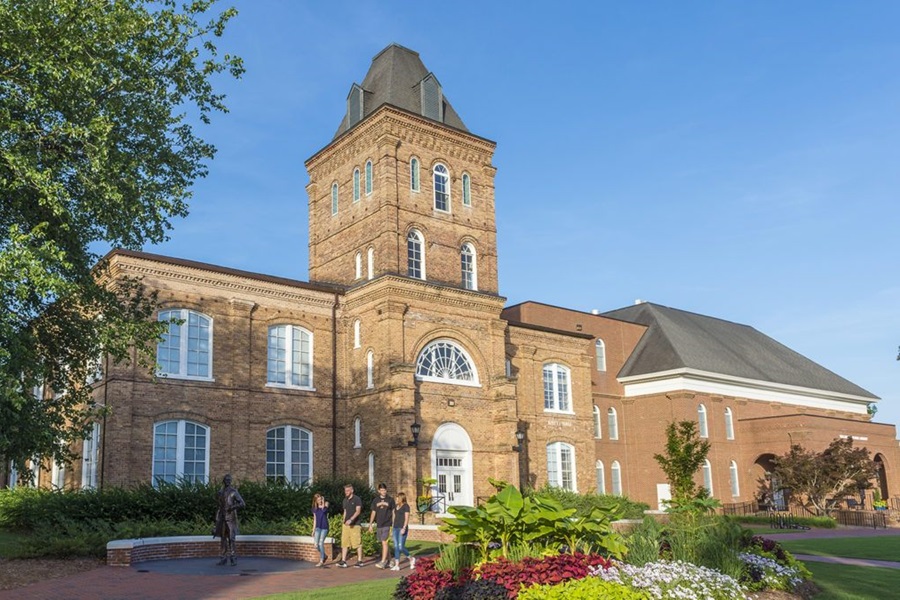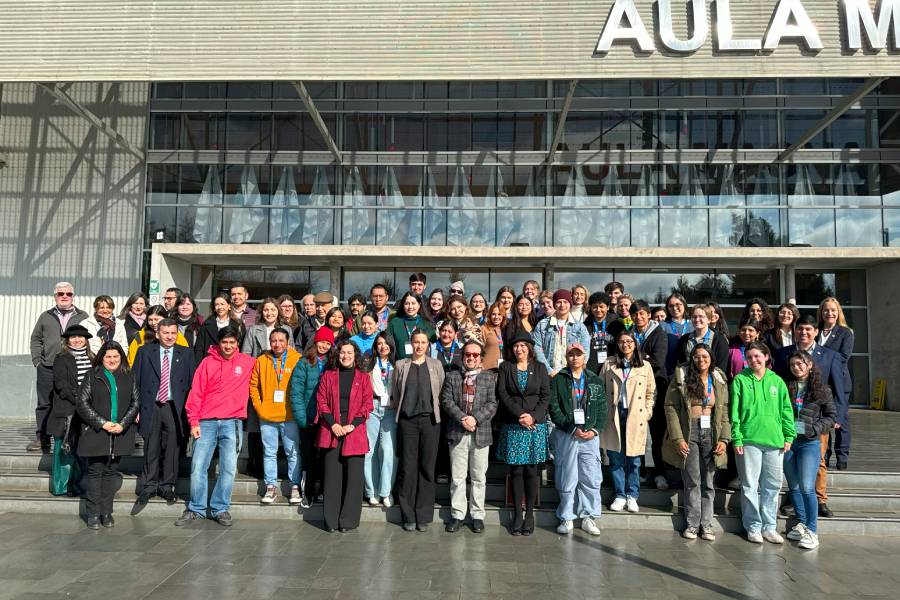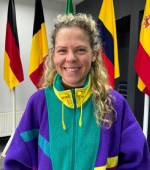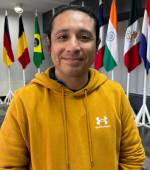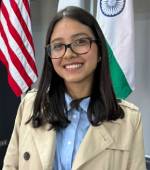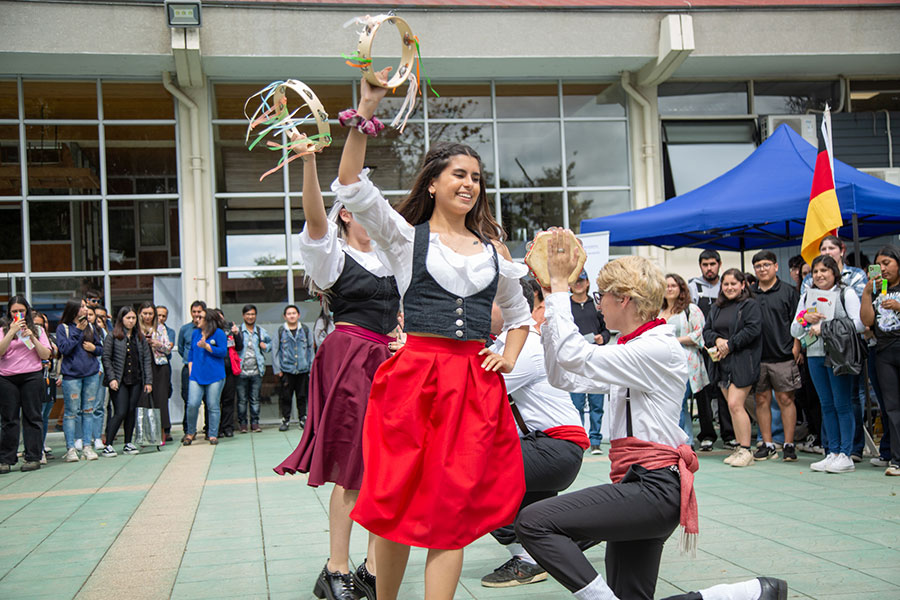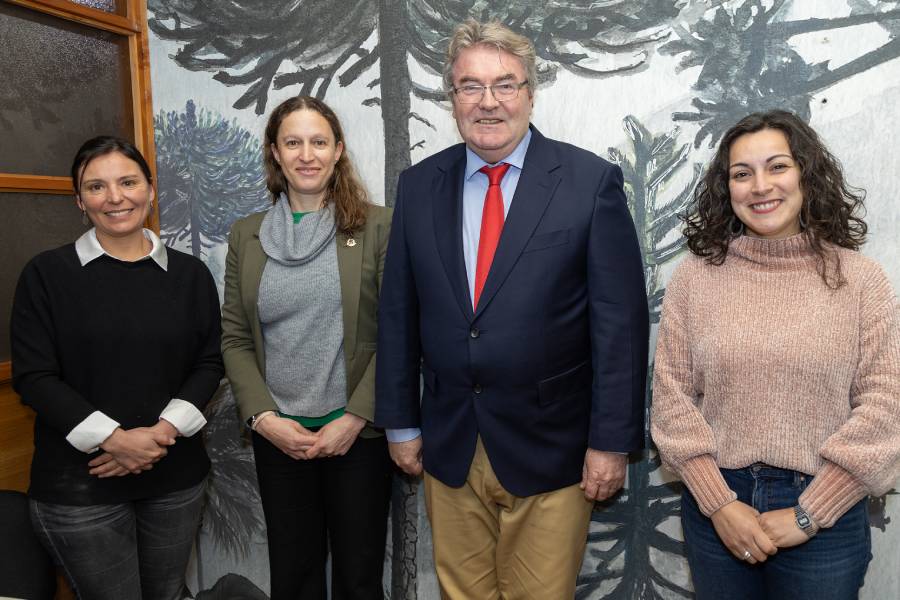|
The Double Graduation Agreement will benefit the students of the Doctorate in Agri-food Sciences and Environment of UFRO and the PhD in Agricultural, Environmental and Food Science and Technology of UNIBO. |
Through its Faculty of Agricultural Sciences and Environment, the Universidad de La Frontera (UFRO) signed an agreement for double graduation and thesis co-supervision for the Doctorate in Agri-food Sciences and Environment with the University of Bologna (UNIBO) in Italy. This alliance dates back to 2016, starting with an academic collaboration mainly through the academic Adamo Rombolá of the Department of Agri-Food Sciences and Technologies at UNIBO. At the beginning, the collaboration was formalized through a Cooperation Agreement between the Department of Agri-Food Sciences and Technologies at UNIBO and the Faculty of Agricultural Sciences and Environment of UFRO, with the academics Dr. Alejandra Ribera, Dr. René Montalba and Dr. Claudia Barchiesi, being reconfirmed in June 2023. Currently, this collaboration is formalized through a new Double Graduation Agreement, signed by both universities in an act that was ratified by Dr. Adison Altamirano, the dean of the Faculty of Agricultural Sciences and Environment, when he visited the renowned university in Italy. “We can highlight that we have an agreement with the oldest university in the world – founded in 1088 – and that reflects their trust in Universidad de La Frontera, represented in this case by our faculty. We are proud, because they recognize our experience in undergraduate and graduate education, research and outreach, and we are very pleased with the signing of this agreement, which will benefit both universities,“ the dean pointed out. The authority also commented that this semester, a student from the University of Bologna is carrying out an internship at the Fruit Crop Center of UFRO, which is a clear example of the concrete actions carried out, inviting and encouraging students to make use of the exchange opportunities with important universities like this one. The double graduation option will benefit students of the Doctorate in Agri-food Sciences and Environment (UFRO) and the PhD in Agricultural, Environmental and Food Science and Technology (UNIBO). It is a new achievement, which has an impact on UFRO’s doctoral programs and demonstrates their academic quality and institutional confidence.
 Written by:Yasna Barría Carrasco, Faculty of Agricultural Sciences and Environment Written by:Yasna Barría Carrasco, Faculty of Agricultural Sciences and EnvironmentTranslated by: UFRO Communications Office |
|
Through a Memorandum of Understanding, the Universidad de La Frontera (UFRO) formalized the collaboration between the UFRO Faculty of Engineering and Science and Campbell University in the United States. |
This year, the Universidad de La Frontera (UFRO) added a new official international partnership with Campbell University in the United States, through its Faculty of Engineering and Science, which was formalized through a Memorandum of Understanding signed by both entities. This new partnership focuses on the development of educational and research activities, including academic and student exchange in undergraduate and graduate education, as well as the provision of information services and other activities of interest for both institutions. “Campbell University started with study programs oriented towards the farmaceutical industry, but over time, they offered new programs focusing on training professionals for the technology industry. Considering this development, this partnership will allow us to acquire and strengthen skills to connect with the technological industrial world,“ commented Dr. Jorge Farías Avendaño, the dean of the Faculty of Engineering and Science of UFRO and coordinator of this cooperation. “This new alliance represents a valuable opportunity to keep strengthening our internationalization process, which is one of the pillars of our University’s Strategic Development Plan for 2024-2028,“ he added. On behalf of Campbell University, this partnership will be coordinated by Dr. Víctor M. Pulgar, Associate Professor of the College of Pharmacy and Health Sciences.
 Written by: Daphne Bormann Parada, Faculty of Engineering and Science Written by: Daphne Bormann Parada, Faculty of Engineering and Science Translated by: Heike Flatau, UFRO Communications Office |
|
The Universidad de La Frontera welcomed the group of exchange students with a traditional welcome ceremony. |
In the framework of multiculturism, the Universidad de La Frontera (UFRO) welcomed 49 national and international exchange students, who will spend this semester at UFRO, in a welcome ceremony organized by the Internationalization Office. The ceremony was led by the Vice-rector for Undergraduate Affairs, Dr. Pamela Ibarra Palma, who warmly welcomed the new students. Highlighting the academic process, the authority emphasized that “student mobility is part of UFROs Strategic Internationalization Plan, and receiving students from different universities from Chile and other parts of the world also enriches the training of our local students. It is extremely beneficial to get in touch with different cultures with another perspective regarding the respective fields of study. That is an obvious contribution to the training of our students. The number of students who come to UFRO increased. That is a sign that we are recognized as a prestigious university with enormous possibilities, not only academically, but also culturally,“ she explained. The director of the Internationalization Office, Dr. Lorena Vieli del Río, indicated: “We are very happy because student mobility is one of the areas we put a lot of effort into. This semester, we have an increase in the number of students from other parts of Chile and the world who come to UFRO. They come from very different countries, guaranteeing a huge cultural diversity that enriches our students‘ lives. We have noticed that they enrich and improve the learning processes and the dynamics in the classroom. What we have to offer is our beautiful region and our culture, two aspects that the foreign students highlight as a unique experience.“ This way, the 49 students from Germany, Belgium, Brazil, Chile, Colombia, Spain, the USA, France, India, Mexico, the Netherlands, and Peru will spend this second semester at the faculties of Medicine; Law and Business; Education, Social Sciences and Humanities; and Engineering and Science, as well as in our graduate programs, and, for the first time, at our Pucon Campus.
Escrito por: Dirección de Comunicaciones
|
Learning, mobility, and exchange opportunities await the visitors of the International Festival UFRO
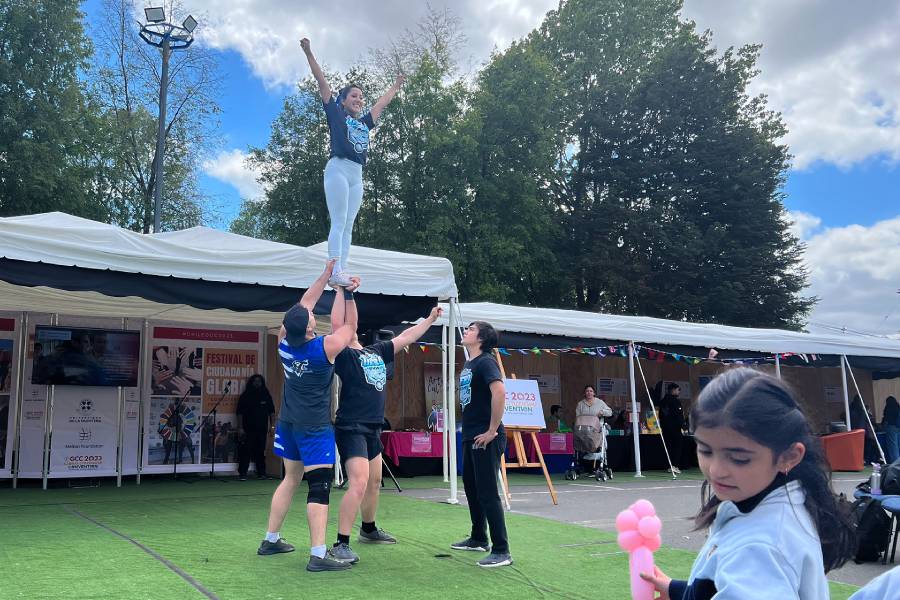 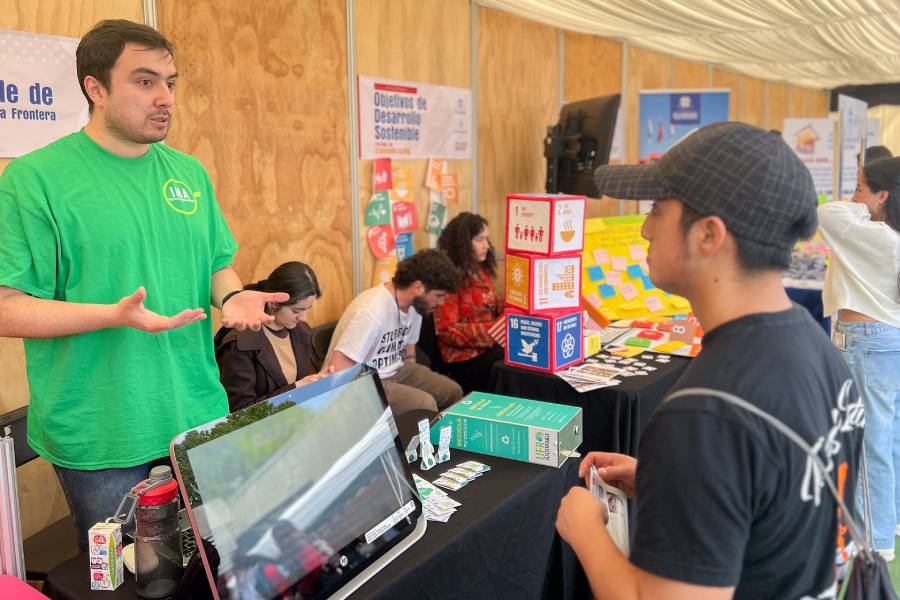
Within the framework of the 3rd International Week UFRO, the university invites the whole community of the La Araucania Region to participate in this activity to get in touch with other cultures and nations, and to learn more about student and academic mobility. |
On Thursday, October 10, the Internationalization Office of Universidad de La Frontera (UFRO) will carry out the third version of the International Festival on the Andrés Bello Campus, where the university community and the regional community can get to know UFROs initiatives of internationalization, student mobility opportunities, partnerships, and international cooperation options. The event, organized by the National and International Student Mobility Office (Vice-rectorate for Academic Affairs) and the Office of General Training and Languages (Vice-rectorate for Undergraduate Affairs) consists of 22 exhibition stands, representing 20 different countries, the RÜPÜ-Program for academic support for students with a Mapuche background, and the Melton Foundation. According to Antonia Espinoza Corzo, the coordinator of the Student Mobility Office, “this is a unique opportunity to promote mobility opportunities among the students, and to emphasize the advantages of cultural diversity and the knowledge of foreign languages. Through the numerous stands and artistic presentations, the visitors will be able to get to know the cultures and international mobility experiences of the incoming and former outgoing students“. In an atmosphere of healthy recreation, full of learning opportunities, music, contests, and raffles, there will also be stands that represent UFROs foreign language courses, thus promoting learning a new language as a key tool for intercultural communication and more opportunities for international academic and professional mobility. It is worth mentioning that the event also includes an entertaining photography exhibition of the contest “Student Mobility in Images“. The countries represented in the festival are: Germany, Belgium, Bolivia, Brazil, Canada, Chile (National Mobility Program), China, Colombia, South Korea, Spain (Catalonia, Basque Country), the USA, France, Italy, Japan, Mexico, the Netherlands, Peru, and the Dominican Republic, as well as the Melton Foundation and the RÜPÜ Program for academic support for students with a Mapuche background. If you would like to see the full program of the 3rd International Week UFRO, you can find it on internacionalizacion.ufro.cl
Written and translated by: UFRO Communications Office
|
|
The authorities of the Internationalization Office of the Universidad de La Frontera held a meeting with Patrick Flot, the Counselor for Cooperation and Cultural Action of the Embassy of France in Chile, and Francisca Acevedo Canala-Echevarría, the UFRO academic and Honorary Consul of France for La Araucanía, to define strategies to strengthen the partnership and determine future actions for student collaboration. |
Continuing the path of internationalization, the Universidad de La Frontera (UFRO), through its Internationalization Office, held a meeting with representatives of France in Chile to discuss actions and strategies that are being carried out within the framework of the current agreements between the French Institute and UFRO, highlighting the student mobility programs and joint research projects, as well as defining possible fields of future collaboration that allow to enrich the academic and cultural experience of the students. The participants in this meeting were the Director of the Internationalization Office, Lorena Vieli del Río; the Undergraduate Student Mobility manager, Antonia Espinoza Corzo; the Counselor for Cooperation and Cultural Action of the Embassy of France, and director of the French Institute in Chile, Patrick Flot; and the UFRO academic and Honorary Consul of France for La Araucanía, Francisca Acevedo Canala-Echevarría. “Our visit aims to strengthen the relationship of cooperation with the Universidad de La Frontera, which helps us to promote and increase student mobility between Chile and France, considering all instruments available regarding science and the universities, to bring together the ecosystems of universities from both countries, Chile and France. Therefore, the idea is to continue establishing these partnerships and cooperations, since we understand the collaboration between universities as a main pillar for our bilateral relationship,“ commented Patrick Flot. Francisca Acevedo Canala-Echevarría highlighted the impact of the current agreements between UFRO and the French Institute. “During the meeting, we were able to analyze the actions carried out within the current agreement between the Universidad de La Frontera and the French Institute, where student mobility between both countries and the scholarships for graduate students stand out. In addition, we achieved to propose future actions that help to consolidate this partnership even more. An example would be the introduction of French as a general training elective subject for undergraduate students, to continue strengthening the academic and cultural exchange between Chile and France,“ she explained. The meeting was a significant step towards the consolidation of international collaboration networks between France and the Universidad de La Frontera, searching for new cooperation opportunities that will open up new possibilities and continue with the promotion of cultural, academic, and scientific exchange between both countries. “This is an example of a concrete collaboration between UFRO and the Embassy of France, through Campus France and the French Institute, seeking to promote the internationalization of our graduate programs and to carry out various actions that involve undergraduate students, allowing that the students can access different benefits, such as co-financing for student mobility in French institutions, thus strengthening their networks, and complementing and connecting their knowledge,“ indicated Lorena Vieli del Río, the director of the Internationalization Office of UFRO. Written and translated by: UFRO Communications Office
|





